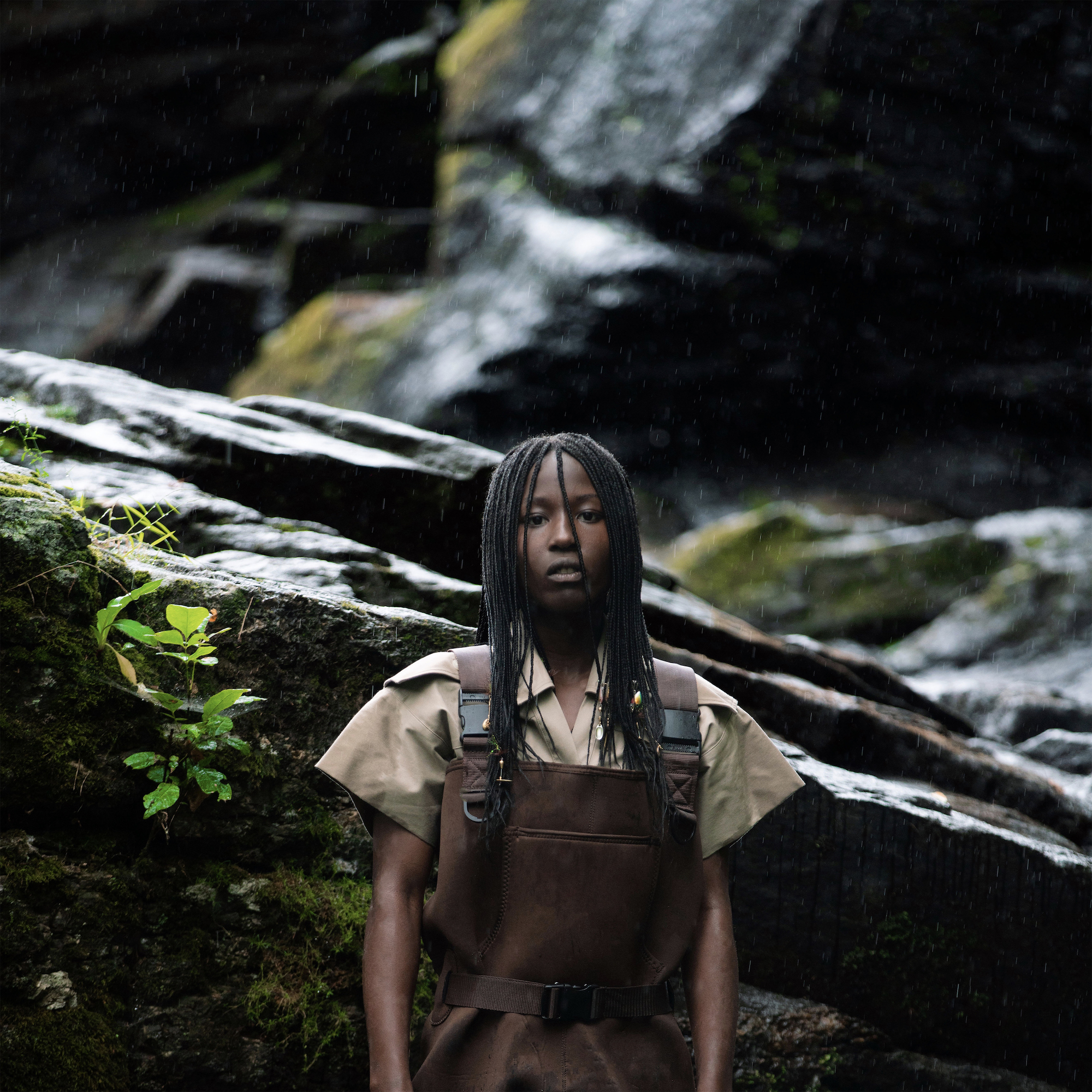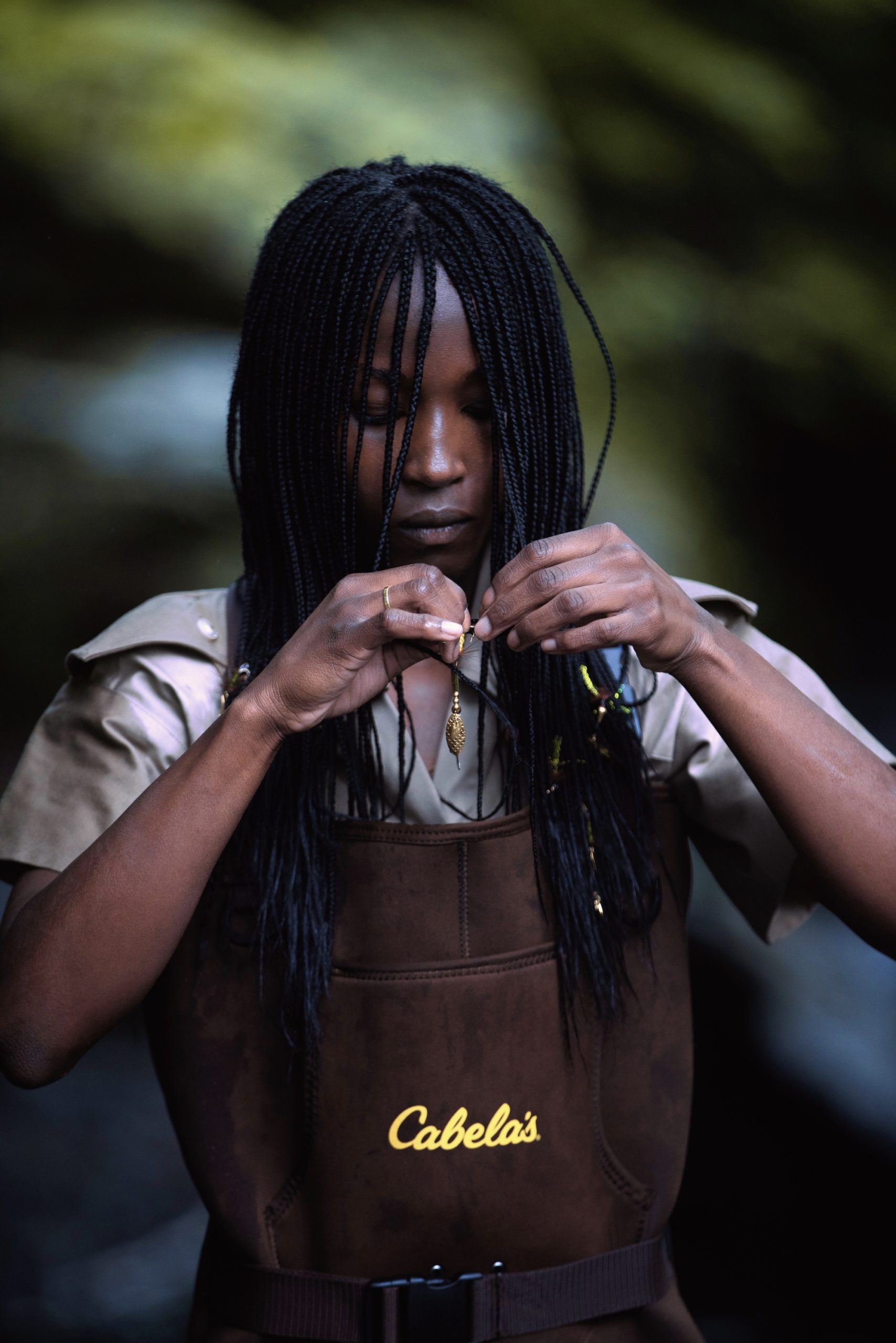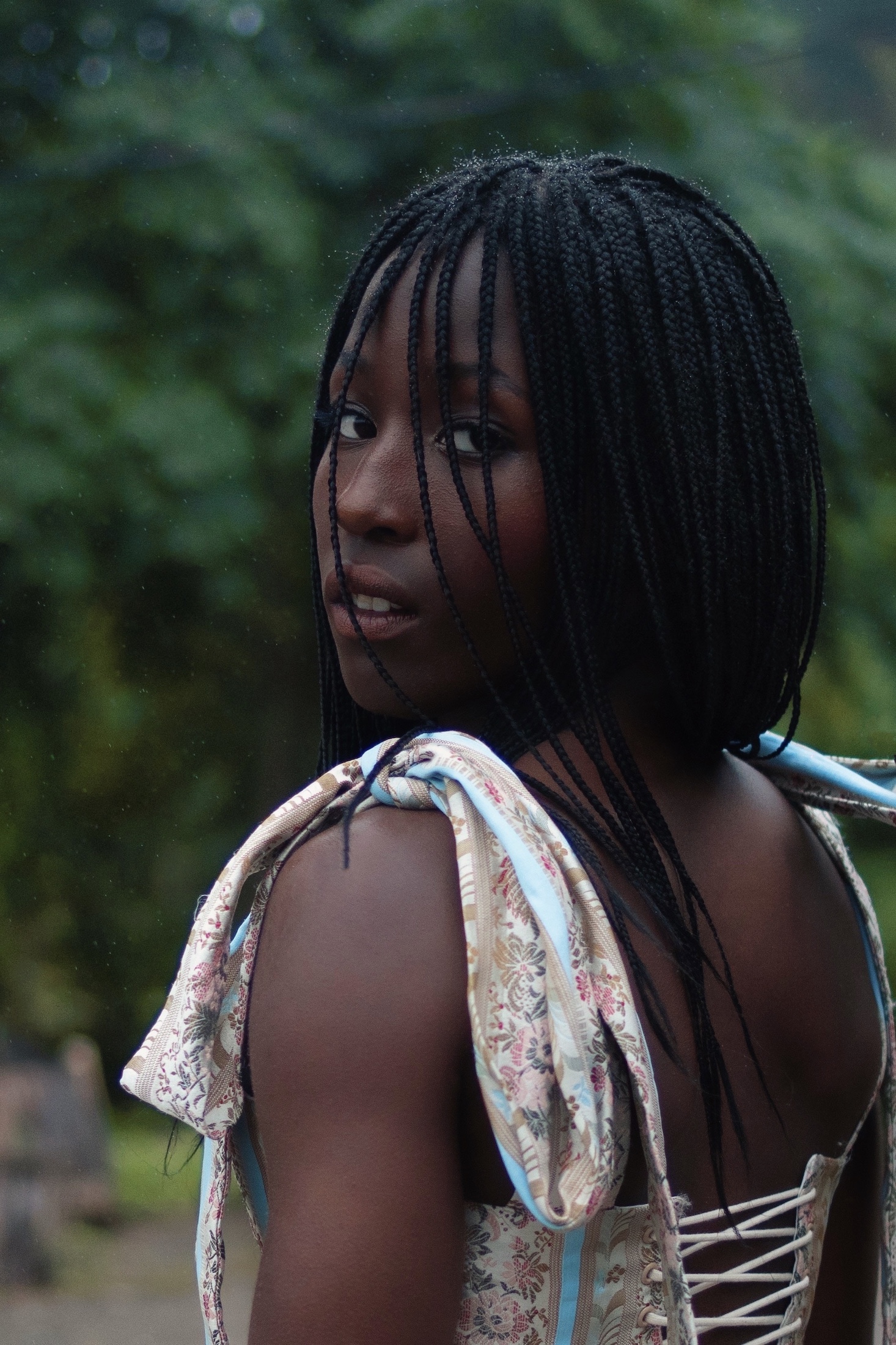The up-and-coming artist talks new EP, ‘the ONE’ and her culturally-diverse roots as a musician.

In light of her debut EP ‘the ONE’, we chat with the up-and-coming, musical-mistress, HAWA. Diving into her unconventional (yet breathtaking) journey to music, we learn the influences which concoct her innate yet complex sound and how she catches a vibe. The EP is a testament to the women she loves, and her love of womanhood itself. The nineteen-year-old began her career at the New York Philharmonic at just nine and since then has been serving us dedication and commitment. Now, swerving away from the limitations of classical music, HAWA reveals her authentic self as a creator and who she is as an artist. She may still be new to this game, but it is HAWA’s confidence, assertion and dedication which ignites an unmistakable fire of pure talent.
This is your first EP, but you have been creating and exploring music since you were very young; can you tell me about that journey?
I’ve always wanted to be a musician, ever since I was a little kid! It’s something that always called to me and has always been the path that I knew I was going to take in life. I was always surrounded by musicians; my uncle is a very successful musician in Africa, so as I grew up I knew that I wanted to be in that world. Though, [it all began] when I went to elementary school in the States. I received a letter, and my first thought was that I was in trouble, because you know…
….it was never a good feeling when you get a letter home from school!
Exactly! I was at first like, ‘what did I do?’ Then I was like, ‘fuck this’, so I opened the letter. If I got in trouble I need to find out what I did first!
You needed to chuck out the window!
Yeah! I needed to decide whether or not it makes it to my parents! However, when I opened the letter I saw it was from the young composer programme at the Philharmonic Society. I always wanted to be a singer, a performer, you know? So when I saw it and I was like, ‘fuck this, this is not the music I want to do’. But I brought the letter to my parents and they looked at it like, ‘oh my god… you’re doing it!’ So, you know, I did. As soon as I went It was super interesting to me, and when I got to hear my first piece of classical music I fell in love. I was very emotional, and I love emotional music.
Wow, so love at first sight…or listen!
Yeah for sure. Then there was this competition at the end of the class (and i’m super competitive), where you wrote a piece and if you won it would be played in front of 26 thousand kids. I was like, fuck it, and I won it! I ended up playing my piece and they put me in this programme after, it was to help you prepare to become a professional. I did that between 11 and 13, but when I first got invited I was around 9 or 10.
So young! Do you think this classical background has influenced who you are as an artist today?
Yeah, I feel like it helped me evolve my sound in a way a lot of people can’t. I feel like my sound is very fresh and I always try to have the emotion that people can connect to. I know how to create certain types of pieces and sounds where you can hear the emotions and then quickly attach to it. Composing classical music, that is one of the biggest basics- particularly from the romantic period.

This emotional root is super authentic in your music; was it ever hard to transition into the music you make today?
No, not really; I’ve always sung and done r&b. I always wrote my own music and rapped so it was actually something I was very comfortable doing from the start. I really wanted to transition into something I loved, I love making melodies with my voice, and using my voice as an instrument. Starting as a composer, it’s like now people can see me fully.
Besides your classical background, you’ve also had a lot of different cultural influences as an artist; how have these contributed to your sound?
[Having these influences] is a strategic advantage. I know what type of sound people from different countries are looking for. In America, you just have the lyrical, dissonant melodies like TLC and Destiny’s child. I’ve got my swag from different places, like Europe and Africa, but just knowing what different people want… it helps me observe.
All of these influences, and your authenticity to yourself, is so present in your work; as a young gay woman, was this openness a conscious decision?
Yeah, it happened naturally. It’s more about the person I am, and it just shows in my art. Music is about talking to women, from the beginning; Mozart, Bach, the romantic period… they’re all talking about their love for women. And I just love women!
What do you think it is about women which makes them so inspirational?
Women are just so beautiful. Them just existing is beautiful. I see women as the flowers of the world. You can have the fucking worst day, but if you come home to the right person, the right woman, it takes all the stress of your shoulders, and I love that. Whenever I sing, and whenever I talk about females, I always envision the things that I’m attracted to… and the things that scare me about women!
You’ve mentioned before that you attribute a lot of this personal confidence in your femininity and beauty to your modelling career. Why do you think this industry provided you with this experience?
In that world there’s no hiding, you can’t shy away. You can have something which you think looks hideous, but you realise no one notices it! It’s something you would never normally do; standing in front of a bunch of people. It’s all about not being afraid!

I think that speaks a lot about how you are as a person though. I think a lot of people would retract from those situations, but for you it provided this space to embrace yourself.
My parents always taught me to be confident in myself. So I don’t really care! I’m so sure of myself, so no one can tell me that my body looks ugly, because at the end of the day, it looks ugly to you… but it can look beautiful to thousands of people. There’s always going to be someone who is going to say something, so you have to be really strong within yourself.
You define yourself as a ‘creator’ as opposed to a ‘singer’, or ‘musician’, why is this and what does the term ‘creator’ mean to you?
I make as I destroy. When you evolve in life, you leave the old behind whilst you make the new. I don’t want to be put in one simple box, just ‘musician’ or ‘artist’, because I’m not going to do music my whole life. I want to do art, I want to write, I want to do more. This is a base to help me explore more into the art world.
You are very much part of the new generation of creators coming on the scene at the moment, what do you hope for the future of your career and the future of music?
I want people to start taking music more seriously. Music creates a legacy, artists can be like politicians; they may only be there for a few years, but their laws and their legacy remain afterwards, and it’s the same for music. I treat music as a game of knowing; knowing you’re creating a legacy because of the influence you’re putting into people’s heads. This legacy can stay there for years! [In the future] I want to win Grammys, you know, if you’re going to do something, do your best and go as far as you can…
Notifications